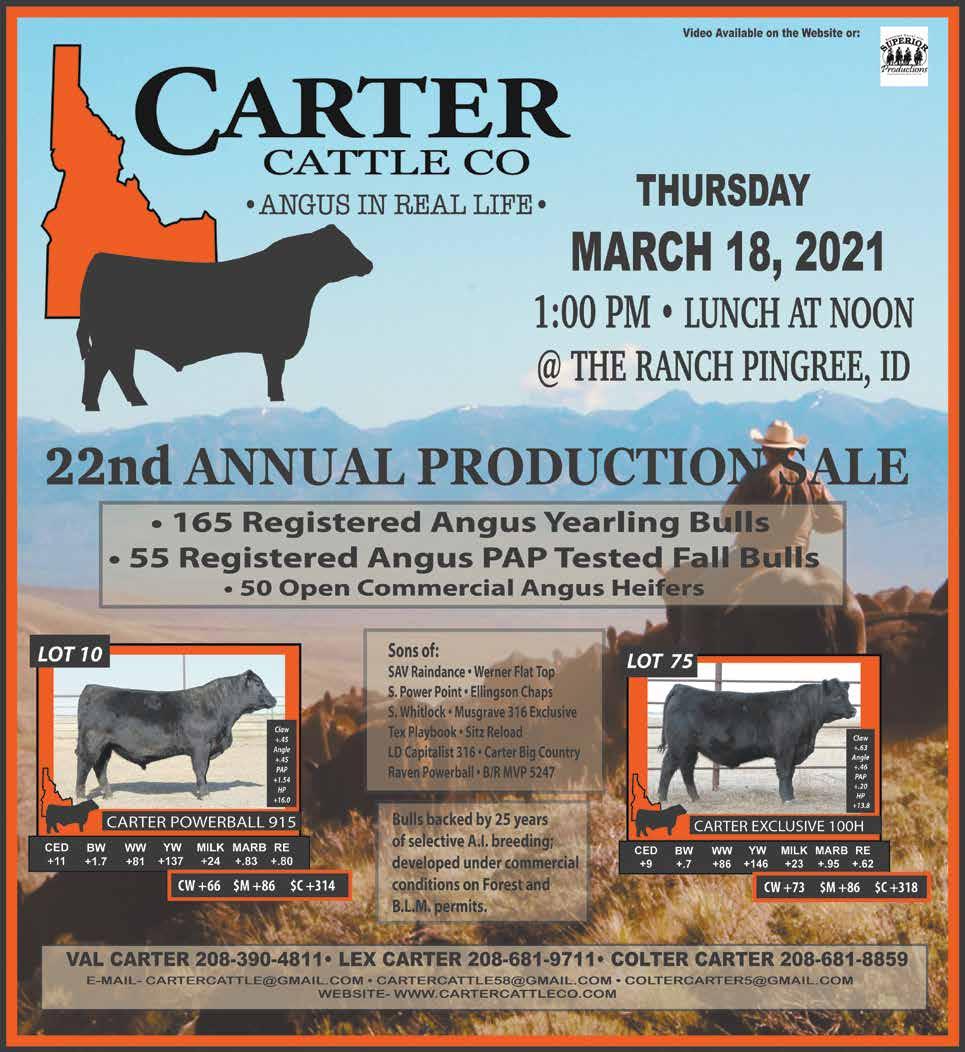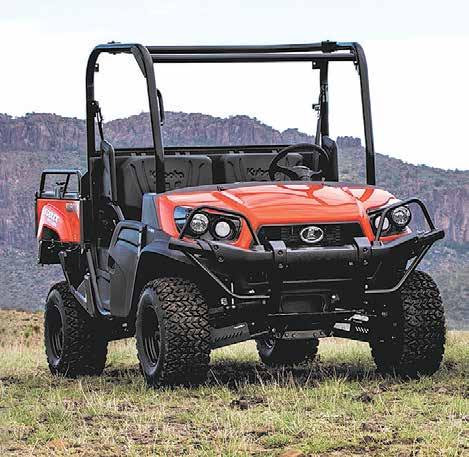
4 minute read
Mind of a Millennial
In the Mind of a Millennial
Earlier this year, I shared some findings from a report released in late 2020 regarding consumer perceptions and behavior during the pandemic.
This report, entitled “State of the Consumer: Fall 2020” (available on https://www.beefresearch.org/) showed that perceptions about beef and beef production actually improved during the course of the pandemic, with overall positive perceptions reaching 70 percent for the first time and positive perceptions specifically regarding how cattle are raised increased 18 percent compared to 2019. This was encouraging news after a challenging year. But as we continue working toward a return to more “normal” times, we as a beef industry have to continue sharing the important work beef and cattle producers do, day in and day out, to care for their cattle. As I type this, producers in many parts of the country are working around the clock to ensure their cows and calves stay safe and healthy in the midst of an abysmal period of winter storms and frigid weather. Showcasing this type of care in difficult circumstances is one way to share the lengths to which farmers and ranchers go to ensure the well-being and livelihood of their livestock. But showcasing the everyday quality care that happens on a regular basis is also key. Recently, the Beef Checkoff funded a series of videos pairing popular chefs with ranchers from throughout the country for a unique look at how beef is raised. The videos were developed through a partnership between the National Cattlemen’s Beef Association (NCBA), a contractor the Beef
Sharing the Story of Cattle Care
By Jill Scofield, Director of Producer Relations California & Nevada Beef Council
Checkoff, and Chef’s Roll, Inc., a global network of chefs and hospitality professionals that promotes its work through programs and original content like these videos.
Specifically, the videos highlight the importance of the Beef Quality Assurance (BQA) program for the ranchers who raise the cattle, and the chefs who serve high-quality beef to their customers. As some of you probably already know, the BQA program provides information about how common-sense husbandry techniques, like low stress animal handling, can be coupled with accepted scientific knowledge to raise cattle under the best management and environmental conditions. Sharing information about the BQA program and the quality care standards it includes provides the industry as a whole a prime example of the type of care producers give their animals, day in and day out. Along those lines, this new video series takes chefs across the beef lifecycle to get a first-hand look at the care that goes into creating high-quality beef. Each video follows a chef as they visit a local cattle operation to learn about how BQA practices are used to sustainably and responsibly raise highquality beef. The rancher then visits the chef’s kitchen to gain an understand of how beef is prepared and featured on the chef’s menu, and the experience is rounded out with a shared beef meal.
Beef producers from western states made up the bulk of those featured in the video series, including Arizona ranch manager Dean Fish, who discusses environmental stewardship and proper cattle handling techniques with Executive Chef Ryan Clark of Casino Del Sol. Idaho rancher Kim Brackett is also included in one of the videos, sharing how prioritizing animal care is the best way to ensure quality beef with Executive Chef Shawn Smith of Coynes Restaurant. And California rancher Jamie Mickelson speaks about the importance of cattle quality of life with Napa Valley Chef Bob Simontacchi of Gravenstein Grill. Producers and chefs from Oklahoma and Georgia are also featured in the video series.
After an initial launch of just a portion of the series late last year, the videos had already amassed 1.3 million views, with that number expected to continue to climb as the videos continue to be rolled out through the Chef’s Roll network and through digital and social media platforms. If you’d like to get a glimpse of them yourself, you can visit BeefItsWhatsForDinner.com and click on the “Newsroom” tab.
These types of projects wouldn’t be possible without the men and women who work so hard to produce beef. Without our producers’ willingness to share their philosophy and the importance of quality care publicly in campaigns such as this is one way that we can further humanize the beef industry and show our consumers the people behind the steak they purchase. For producers who are not yet BQA certified – or need to get recertified – doing so is easy. Information on the program is available at BQA.org, and you can also get certified through online training modules available on the site. Online training is free. If you’d like to participate in an in-person training, join us for the Stockmanship & Stewardship event slated for July 17 and 18 at the Elko County Fairgrounds. The event will include animal handling demonstrations with renowned clinicians Ron Gill and Curt Pate, and will also include training sessions to earn BQA certification. More information and event registration will be live at StockmanshipandStewardship.org later this spring.









